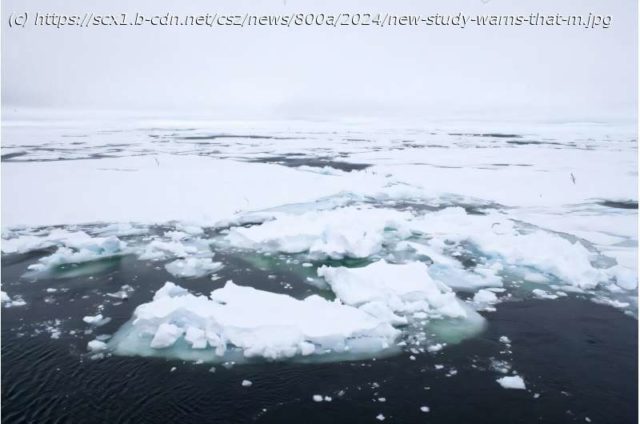The warming climate in polar regions may significantly disrupt ocean circulation patterns, a new study indicates. Scientists discovered that in the distant past, growing inflows of freshwater from melting Arctic sea-ice into the Nordic Seas likely significantly affected ocean circulation, sending temperatures plummeting across northern Europe.
The warming climate in polar regions may significantly disrupt ocean circulation patterns, a new study indicates. Scientists discovered that in the distant past, growing inflows of freshwater from melting Arctic sea-ice into the Nordic Seas likely significantly affected ocean circulation, sending temperatures plummeting across northern Europe.
“Our finding that enhanced melting of Arctic sea-ice likely resulted in significant cooling in northern Europe in the Earth’s past is alarming”, says Mohamed Ezat from the iC3 Polar Research Hub, lead author of the study available open access in Nature Communications.
“This reminds us that the planet’s climate is a delicate balance, easily disrupted by changes in temperature and ice cover.”
Ice-free summer conditions are expected to occur in the Arctic Ocean from the year 2050 onwards.
Earlier this month, dozens of climate scientists warned in an open letter that climate change is generating a “serious risk of a major ocean circulation change in the Atlantic [that] would have devastating and irreversible impacts.
Home
United States
USA — IT Melting Arctic sea-ice could affect global ocean circulation, study warns






